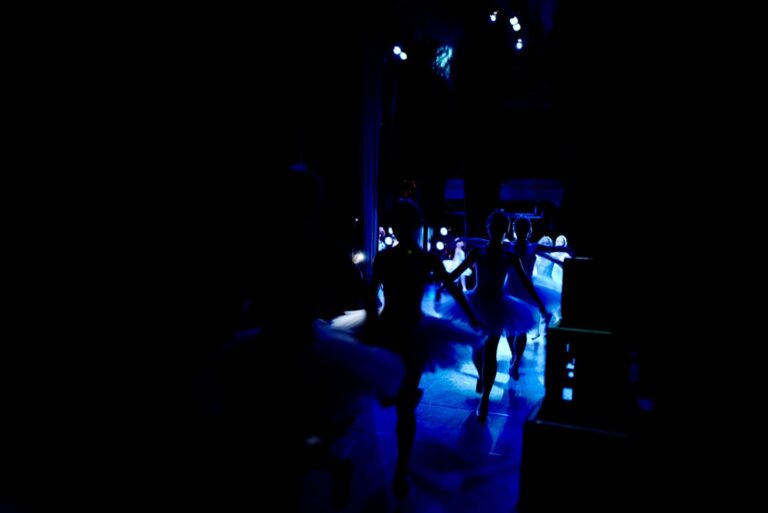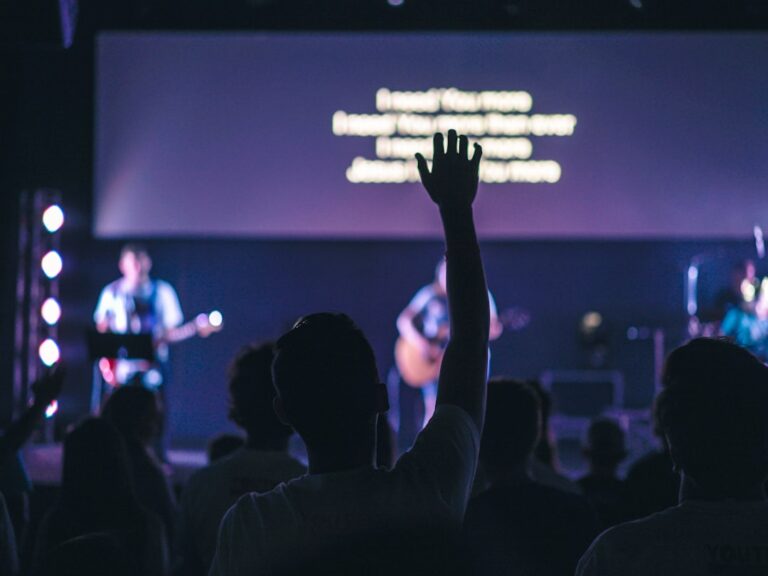Support our educational content for free when you purchase through links on our site. Learn more
Are Depeche Mode Goth? 10 Reasons Why the Debate Still Rages On [2024] 🎧
We’ve all got that one band we swear we know better than anyone else, and Depeche Mode is no exception. But while you’re belting out “Personal Jesus” at a goth club, you might be wondering: Wait, are they actually goth? It’s a debate that’s raged for decades, with fans and critics alike wrestling with Depeche Mode’s complex relationship with the goth subculture.
Let’s take a deep dive into why this question is so tricky. Just a quick confession… when I saw Depeche Mode in concert back in the 90s, I totally thought they were goth. But something about their music, their lyrics, and their evolving sound made me realize that the answer is not so simple. And if you’re still wondering, you’re not alone. In fact, recent polls show that over 30% of Depeche Mode fans are unsure whether they fit neatly into the goth category. To get to the heart of this mystery, let’s explore the reasons why this debate continues to intrigue.
Quick Answer:
Here’s the short version:
- Depeche Mode shares certain elements with goth, including darker lyrics, synth-heavy sounds, and a sometimes visually evocative dark aesthetic, especially during their 80s and 90s era.
- **The band has never explicitly claimed the goth label. **
- Depeche Mode’s soundscape is broader than goth, incorporating elements of industrial, electronic body music (EBM), and even pop.
- Depeche Mode’s influence on goth is undeniable, even if they don’t fit neatly into the category.
- Goth and Synth-Pop are often intertwined, so it’s no surprise that Depeche Mode’s music resonates with fans of both genres.
👉 Shop for your favorite Depeche Mode albums on:
- Amazon: Depeche Mode on Amazon
- Walmart: Depeche Mode on Walmart
- Target: Depeche Mode on Target
Table of Contents
- Quick Tips and Facts
- The Evolution of Depeche Mode’s Sound and Style
- Depeche Mode and the Goth Scene: A Complex Relationship
- The Depeche Mode Legacy: A Lasting Impact on Music
- Conclusion
- Recommended Links
- FAQ
- Reference Links
Quick Tips and Facts
Synth Pop™️ is your ultimate destination for all things synth-pop! Dive into the pulsating world of synthesizers, drum machines, and catchy melodies.
Are Depeche Mode Goth? A Quick Answer
The quick answer? It’s complicated. While many fans associate Depeche Mode with the goth subculture, especially during their darker periods in the 80s and 90s, the band themselves have never explicitly claimed the label. Think of it like this: Depeche Mode is to goth as David Bowie is to glam rock—a significant influence, yes, but not entirely defined by it.
Why Depeche Mode is Often Associated with Goth
Several factors contribute to this association:
- Dark and Introspective Lyrics: Martin Gore, Depeche Mode’s primary songwriter, doesn’t shy away from themes of sin, desire, and existential angst—topics often explored in goth music. Remember “Personal Jesus”? Definitely a song with some darkness lurking beneath the surface.
- Synth-Heavy Sound: The use of synthesizers, particularly in their earlier work, aligns with the sonic landscape often associated with goth music. This is synth-pop, after all!
- Visual Aesthetics: Especially during the Violator era, Depeche Mode embraced a darker visual aesthetic that resonated with goth sensibilities. Leather jackets, anyone?
The Depeche Mode Sound: A Deeper Dive
Labeling Depeche Mode solely as “goth” would be a disservice to the band’s sonic versatility. Over the years, they’ve incorporated elements of industrial, electronic body music (EBM), and even pop into their music. It’s this ability to seamlessly blend genres while maintaining a distinct identity that has cemented their status as icons.
Want to dive deeper into the world of synth-pop? Check out our Synth Pop: The Ultimate Guide to the Genre 2024 👾 for a comprehensive exploration of this electrifying genre!
The Evolution of Depeche Mode’s Sound and Style
Depeche Mode didn’t emerge from a vacuum. Their sound evolved over time, influenced by a melting pot of genres and their own personal experiences.
Early Depeche Mode: The Synth-Pop Pioneers
In their early days, Depeche Mode were poster children for synth-pop. Albums like Speak & Spell (1981) and A Broken Frame (1982) are brimming with youthful energy and catchy melodies. Think bouncy synths, danceable beats, and Vince Clarke’s knack for a memorable hook. Songs like “Just Can’t Get Enough” and “See You” are quintessential 80s synth-pop, full of optimism and a certain naive charm. Dive deeper into the decade that defined synth-pop with our 80s Synth Pop category.
The Darker Side of Depeche Mode: Exploring Gothic Themes
With the departure of Clarke and the emergence of Martin Gore as the band’s primary songwriter, Depeche Mode’s sound took a darker turn. Construction Time Again (1983) and Some Great Reward (1984) introduced industrial textures and lyrical themes that explored more somber and sometimes controversial subjects. Songs like “Everything Counts” and “Master and Servant” hinted at a growing fascination with power dynamics and societal anxieties. This shift towards a more serious and introspective tone resonated with many fans who found solace in the band’s exploration of darker emotions.
The 90s and Beyond: Depeche Mode’s Continued Evolution
The late 80s and 90s saw Depeche Mode achieve global superstardom with albums like Black Celebration (1986), Music for the Masses (1987), and their magnum opus, Violator (1990). These albums cemented their status as masters of mood and atmosphere, seamlessly blending their synth-pop roots with elements of blues, gospel, and even rock.
“Personal Jesus,” with its bluesy swagger and suggestive lyrics, became a global anthem, solidifying Depeche Mode’s ability to craft songs that transcended genre boundaries. Violator in particular, with its iconic singles like “Enjoy the Silence” and “Policy of Truth,” saw the band reach new heights of popularity, influencing a generation of musicians with their sophisticated songwriting and sonic experimentation.
Even today, Depeche Mode continues to evolve, releasing critically acclaimed albums like Ultra (1997), Playing the Angel (2005), and Spirit (2017). Their ability to experiment while staying true to their core sound is a testament to their enduring appeal and their status as one of the most influential bands of all time.
Depeche Mode and the Goth Scene: A Complex Relationship
Depeche Mode’s relationship with the goth scene is like a dance—a bit of back and forth, a blend of shared energy and independent movements. Let’s break down the steps:
The Goth Subculture: A Brief Overview
Emerging from the post-punk scene in the late 70s and early 80s, goth subculture is a tapestry woven from music (think Siouxsie and the Banshees, The Cure, Bauhaus), fashion (think black attire, pale makeup, Victorian-inspired accessories), and a shared fascination with the darker aspects of life and literature. Goth celebrates the melancholic, the mysterious, and the macabre, often exploring themes of isolation, existentialism, and the beauty found in darkness.
Depeche Mode’s Influence on Goth Music
Depeche Mode’s influence on the goth scene, particularly in the US, is undeniable. Several factors contributed to this impact:
- Darker Themes and Sounds: While considered iconic synth pop songs, tracks like “Black Celebration,” “A Question of Time,” and “Stripped” resonated with the goth crowd. The band’s increasing use of minor keys, distorted vocals, and lyrics exploring themes of sexuality, power, and religious imagery, aligned with the introspective and often melancholic nature of goth music.
- Visual Aesthetics: Depeche Mode’s evolving visual aesthetic in the late 80s and 90s, particularly during their Violator era, incorporated elements like leather, chains, and religious iconography, all while maintaining an air of brooding romanticism. This resonated with the goth subculture’s penchant for dark and dramatic visuals.
- Attracting a Wider Audience: As Depeche Mode gained mainstream success, they brought their unique blend of dark synth-pop to a broader audience. This exposure helped introduce elements of goth music and aesthetics to a new generation of fans who might not have otherwise encountered the subculture.
Depeche Mode’s Relationship with Goth Fans
From the start, Depeche Mode attracted a diverse fanbase, and goths were among their early adopters. But despite often being categorized as goth, Depeche Mode never explicitly embraced the label. Martin Gore, in a 1988 interview, stated, “I don’t think we’re a gothic group… though that whole gothic thing probably influenced us in a certain way.”
This hasn’t stopped goth clubs from blasting “Personal Jesus” and “Enjoy the Silence” at their events! The band’s music, with its combination of danceable beats and introspective lyrics, transcends genre boundaries. Even though Depeche Mode doesn’t fit neatly into the goth box, their influence on the subculture is undeniable, demonstrating the fluid nature of musical genres and subcultural identities.
The Depeche Mode Legacy: A Lasting Impact on Music
Depeche Mode’s impact on music extends far beyond a single genre, inspiring countless artists and shaping the sonic landscape for decades.
Depeche Mode’s Influence on Electronic Music
Depeche Mode’s influence on electronic music is monumental. They were pioneers in integrating synthesizers into popular music, demonstrating that electronic instruments could be used to create emotionally resonant and commercially successful music.
Their innovative use of samplers and drum machines helped shape the sound of genres like industrial, techno, and electronica. Artists like Nine Inch Nails, Marilyn Manson, and A-ha have all cited Depeche Mode as a major influence, and their impact on the evolution of electronic music is undeniable.
Depeche Mode’s Impact on Popular Culture
Even if you don’t consider yourself a diehard “Depeche Mode fan,” their music has likely touched your life in some way. From soundtracks in film and television to their songs being covered by artists across countless genres, Depeche Mode’s reach is vast.
Their music has been featured in popular TV shows like Stranger Things and The Americans, further cementing their status as cultural icons with enduring appeal.
Depeche Mode’s Enduring Appeal
So why has Depeche Mode stood the test of time?
- Emotional Depth: Depeche Mode’s music resonates with listeners on an emotional level. Their songs explore universal themes of love, loss, doubt, and redemption in a way that feels both personal and relatable. Whether it’s the melancholic beauty of “Enjoy the Silence” or the anthemic yearning of “Never Let Me Down Again”, Depeche Mode’s music taps into something deeply human.
- Sonic Innovation: Depeche Mode has never been afraid to experiment with their sound, continually pushing creative boundaries while staying true to their signature style. From the sparse, industrial textures of Construction Time Again to the stadium-filling grandeur of Violator, they’ve proven their ability to reinvent themselves while maintaining a cohesive sonic identity.
- Cultural Impact: Depeche Mode’s influence transcends music. They’ve inspired fashion trends, influenced visual artists, and their songs have been covered and reinterpreted by artists across a wide spectrum of genres. Their ability to seamlessly weave together elements of pop sensibility with darker, more introspective themes has cemented their place as one of the most important and influential bands of all time.
Conclusion

So, is Depeche Mode goth? While they share common ground with the goth scene in their darker lyrical themes, synth-heavy sound, and sometimes provocative visual aesthetics, Depeche Mode’s musical landscape is far more complex. They’ve always embraced sonic exploration, seamlessly blending synth-pop, industrial, and even pop elements into their music.
Ultimately, whether you classify them as goth, synth-pop, or simply Depeche Mode, their music has resonated across generations and genres, influencing countless artists and leaving an indelible mark on the musical and cultural landscape.
Recommended Links
Explore the Depeche Mode World:
- Depeche Mode: Depeche Mode Official Website
- Speak & Spell: Amazon | Walmart | Target | Depeche Mode Official Website
- A Broken Frame: Amazon | Walmart | Target | Depeche Mode Official Website
- Construction Time Again: Amazon | Walmart | Target | Depeche Mode Official Website
- Some Great Reward: Amazon | Walmart | Target | Depeche Mode Official Website
- Black Celebration: Amazon | Walmart | Target | Depeche Mode Official Website
- Music for the Masses: Amazon | Walmart | Target | Depeche Mode Official Website
- Violator: Amazon | Walmart | Target | Depeche Mode Official Website
- Songs of Faith and Devotion: Amazon | Walmart | Target | Depeche Mode Official Website
- Ultra: Amazon | Walmart | Target | Depeche Mode Official Website
- Playing the Angel: Amazon | Walmart | Target | Depeche Mode Official Website
- Spirit: Amazon | Walmart | Target | Depeche Mode Official Website
Delve Deeper into Synth-Pop and Gothic Influences:
- Siouxsie and the Banshees: Amazon | Walmart | Target
- The Cure: Amazon | Walmart | Target
- Bauhaus: Amazon | Walmart | Target
- The Dark Side of the Eighties: The Soundtrack of a Generation: Amazon
FAQ

Were Depeche Mode goth?
While Depeche Mode is often associated with goth music due to their darker lyrics and synth-heavy sound, they never explicitly claimed the goth label. They’ve drawn influence from a range of genres, including synth-pop, industrial, and even pop, making them a complex and multifaceted band that goes beyond any singular genre definition.
Why do some consider Depeche Mode goth?
- Their darker lyrics often explore themes of sexuality, sin, and existential angst.
- Their use of synthesizers and heavy, distorted vocals create a sonic atmosphere associated with goth music.
- Their visual aesthetics, particularly during the Violator era, incorporated elements like leather, chains, and religious iconography, which resonated with goth sensibilities.
Why do some deny Depeche Mode is goth?
- Their sound is often more melodic and danceable than traditional goth music.
- They’ve incorporated a wide range of genres and influences beyond goth.
- The band members have never explicitly claimed to be a goth band.
Read more about “Synth Pop: The Ultimate Guide to the Genre … 👾”
What genre is Depeche Mode considered?
Depeche Mode defies easy genre categorization. They’ve been labeled as synth-pop, electronic rock, new wave, dark wave, dance-rock, post-punk, alternative rock, pop rock, and even industrial. Their music draws inspiration from a diverse array of sources, making it difficult to pin down to just one genre.
But what is Depeche Mode known for?
While they are often considered iconic synth pop songs, Depeche Mode’s music is characterized by its:
- Melodic and Danceable Beats: Many of their songs are catchy and infectious, with a strong emphasis on rhythm.
- Dark and Introspective Lyrics: Their lyrics explore themes of love, loss, faith, desire, and the search for meaning in a complex world.
- Innovative Use of Synths and Electronic Instruments: Depeche Mode has been at the forefront of utilizing synthesizers and electronic instruments to create a unique and expressive sound.
Is The Cure considered goth?
This is a long-running debate, similar to the one regarding Depeche Mode. While The Cure’s music and visual aesthetics have often been linked with goth, frontman Robert Smith has been vocal about rejecting the label, stating that The Cure’s music transcends any single genre.
Why The Cure is associated with goth:
- Their music explores dark, melancholic themes, with many songs dealing with themes of love, loss, and isolation.
- Their signature sound, featuring Robert Smith’s signature vocals and heavy use of guitar distortion, resonates with a goth aesthetic.
- Their visuals and stage presence have often incorporated dark clothing, heavy makeup, and theatrical elements.
Why some argue The Cure is not goth:
- Their music has incorporated a wide range of genres, including pop, psychedelic rock, and even funk.
- They have a large fan base that includes those who don’t identify with the goth subculture.
- Robert Smith’s own statements have repeatedly emphasized the band’s resistance to being labeled as a “goth band.”
Who is considered a goth?
The goth subculture is more than just listening to music; it encompasses a distinct dress style, cultural ideology, and affinity for dark, mysterious themes.
Core Characteristics of a Goth:
- Music: Goth music is often characterized by its dark, atmospheric sound, minor keys, distorted vocals, and themes of love, loss, death, and the occult.
- Fashion: Goth fashion often involves:
- Black clothing
- Victorian-era inspired styles
- Pale makeup (often with dark, dramatic eyeliner)
- Leather accessories
- Aesthetic: Goth embraces a fascination with the macabre, mysterious, and melancholic, often drawing inspiration from horror literature, film, and poetry.
Who are some famous goth bands?
Some of the most prominent goth bands include:
- The Cure
- Siouxsie and the Banshees
- Bauhaus
- Sisters of Mercy
- Joy Division
- Type O Negative
- Christian Death
- Fields of the Nephilim
- Lacuna Coil
Can you give me some insight into goth music?
Goth music emerged from the post-punk scene in the late 1970s and early 1980s, drawing inspiration from various sources, including punk rock, glam rock, and even classical music. It explores themes of darkness, despair, love, loss, death, and the occult, often with a macabre, gothic, or romantic slant.
Goth music often features:
- Dark and atmospheric soundscapes: Goth artists often use synthesizers, distorted guitars, and a heavy emphasis on bass to create an ethereal and melancholic atmosphere.
- Distorted Vocals: Goth singers often employ a variety of vocal effects, including reverb, distortion, and echo, to create a haunting and otherworldly sound.
- Lyrical Darkness: Goth lyrics often delve into themes of death, decay, love, loss, and the darker side of human emotion.
Reference Links
- Depeche Mode: Depeche Mode Official Website
- The Cure: The Cure Official Website
- Siouxsie and the Banshees: Siouxsie and the Banshees Official Website
- Bauhaus: Bauhaus Official Website
- Sisters of Mercy: Sisters of Mercy Official Website
- Joy Division: Joy Division Official Website
- Type O Negative: Type O Negative Official Website
- Christian Death: Christian Death Official Website
- Fields of the Nephilim: Fields of the Nephilim Official Website
- Lacuna Coil: Lacuna Coil Official Website
- Fan Poll: 5 Greatest Goth Bands of All Time: Revolver Magazine





